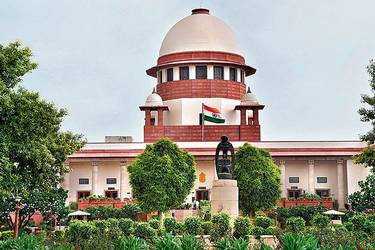

By Sunil Garodia
First publised on 2021-04-14 06:41:44
The Supreme Court on Tuesday came down heavily on the practice of lower courts routinely staying police investigations or granting relief or protection to the accused. The court was of the opinion that courts should not do so in the initial stages of the police investigations. It should be done only in exceptional cases where it is clear that a prima facie case cannot be made out and the intention was to harass the accused. Even then, the court opined that the reasons for staying the probe should be spelt out to show application of mind by the lower court.
The court said that "an FIR is not an encyclopaedia to disclose all facts" related to the case and the police should be allowed to investigate the case to find out the truth. It also said that the police and the judiciary operate in their relevant spheres and must not tread over the other's domain. "The extraordinary and inherent powers of the court do not confer an arbitrary jurisdiction to act according to its whim or caprice", the court said, and added that courts should be cautious while interfering with criminal investigations. The court categorically said that "quashing of a complaint/FIR should be an exception rather than an ordinary rule".
It is good that the Supreme Court has taken cognizance of this dubious practice in lower courts. Many police investigations are scuttled as the accused manage to get a quashing or stay order from the courts. Since lower courts do this in a routine manner without spelling out the reasons, it becomes disruptive and the police are not allowed to proceed in the case. There is no doubt that many criminal cases are filed just to harass the accused and as the apex court has said, the lower courts can apply their minds and grant relief in such cases by recording the reasons.











